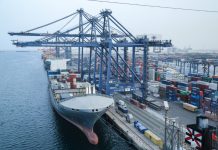Rich McAvey, Research Vice President – Oil and Gas at Gartner talks about the importance of digital technologies in the oil and gas industry, the existing challenges and how organisations can continue to remain impactful in the era of big data and constantly evolving IT needs
Digital oilfield technologies have helped in higher production, increased recovery rates and lowered costs. But is there still more work to be done in the middle east?
Digital oilfields are a decade old phenomena, but they have new meaning today and can be thought of in four phases. The first phase is to connect with sensors used the field. The second phase is to build some intelligence into the field by using the data to help make better decisions. And this work is mostly already accomplished.
We are now moving into a new era where we are going to actually call them digital oilfields for the first time. The term has new meaning which encompasses full enablement of digital capabilities. We are talking about remote control and operations; ability to embed algorithms and control activities autonomously in these fields; the use of big data tech analytics to bring in a new class of equipment; and more. So this goes way beyond what we’ve had in the past and enables a lot more to happen digitally.
And then there’s a fourth phase that’s coming – it really hasn’t hit the industry yet. We’ll call it autonomous operations. In the automotive industry we talk about self driving cars, in the oil & gas industry we’ll have self-driving mechanisms in the field as well; not just self-driving but self-operating activities. But that’s probably still a little bit down the road.
What are the challenges faced by the middle east companies in completely implementing the digitizing process?
I think that a lot of the companies have that same first challenge, which is the organisational culture of the oil & gas industry. It is siloed into very small stovepipes. For digital to work, it really has to be integrated at a higher level. Data has to be consolidated and integrated and the ability to optimise and predict requires an enabled core to support all of that. And that’s not consistent with the current organisational structures of the oil & gas companies.
The second challenge is that the vendors which provide software into this industry tend to use older architectures that are not as open, and hence they don’t integrate as well. We need the whole industry platform to come up to speed with modern technology standards or – web standards.
The third challenge has to do with internal management of the information. It’s never been designed to be integrated, and so data from a rig, isn’t compatible with data from the ERP system. It’s not a problem in terms of data quality issue it’s a design issue. So we have to redesign how we govern, store and manage our data so that it can be integrated to support the digital aspect.
How will digitalisation help in middle east oil exploration in remote areas?
The first is that it’s going to help strengthen the decision making in the field, and that’s through things like collaboration centres where people in the field can connect and interact with master engineers and technicians back in headquarters. So we can have a small group of people at headquarters who can support many remote assets. With industries having hard times, 444,000 plus layoffs, there isn’t as much talent to go around as there used to be. So this ability to have the talent you have available to many assets is a big benefit.






